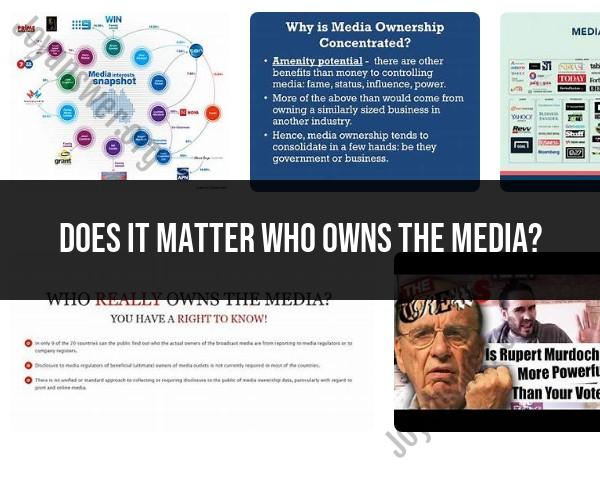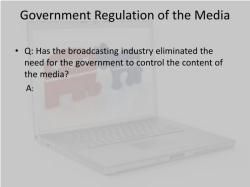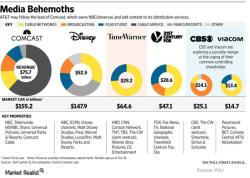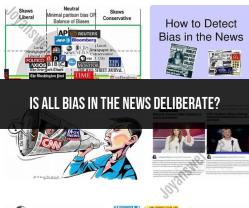Does it matter who owns the media?
Yes, media ownership is significant, and it matters who owns the media for several reasons. Media ownership has a profound impact on the information and content that the public consumes, as well as the role of the media in society. Here are some of the key reasons why media ownership is important:
Influence on Editorial Content: The owners of media outlets can influence editorial decisions, content, and the framing of news stories. This influence can impact the tone and perspective of the media, potentially leading to bias or skewed reporting.
Media Independence: Independent media is essential for a healthy democracy. Diverse ownership ensures that a range of voices and perspectives can be heard, fostering a more balanced and informed public discourse.
Pluralism and Diversity: Diverse ownership encourages diversity in news coverage and representation. It helps to prevent the concentration of media power in the hands of a few, which can lead to a lack of diversity in viewpoints and underrepresentation of certain communities.
Accountability and Transparency: Media ownership structures can affect the level of accountability and transparency in media organizations. Transparent ownership can help maintain public trust in the media.
Quality of Journalism: The financial interests and priorities of media owners can impact the quality of journalism. Profit-driven owners may prioritize sensationalism or entertainment over substantive reporting.
Freedom of the Press: Media ownership can influence the degree of freedom and independence enjoyed by journalists and media organizations. Concentrated ownership can lead to self-censorship and a chilling effect on investigative reporting.
Media Monopoly: Media concentration, where a small number of corporations or individuals own a large portion of media outlets, can result in a media monopoly. This can stifle competition and reduce the diversity of voices in the media landscape.
Public Interest: Media outlets have a responsibility to serve the public interest by providing accurate, diverse, and reliable information. Ownership that prioritizes profit over the public interest can undermine this responsibility.
Cultural Impact: Media ownership can also affect cultural expression and representation. Owners may influence the portrayal of different cultures, groups, or communities in media content.
Political Influence: Media ownership can have political implications, as media outlets may support or promote the political interests and ideologies of their owners.
It's essential for a democratic society to have a media landscape that is diverse, independent, and accountable. While ownership is a critical factor, media regulation, media literacy, and the role of professional journalism also play significant roles in shaping the media landscape and ensuring that it serves the public interest.
In many countries, there are regulations and policies in place to address media ownership and promote diversity, independence, and the public interest. However, ongoing discussions and vigilance about media ownership and its impact on society are essential for maintaining a healthy and vibrant media ecosystem.
Does ownership of media outlets affect the content and bias of news reporting?
Yes, ownership of media outlets can affect the content and bias of news reporting. Media owners have a vested interest in the success of their businesses, and this can influence the types of stories that are reported and how they are reported. For example, a media owner who is also a major shareholder in a corporation may be less likely to report on news stories that are critical of that corporation.
How do ownership structures in the media industry influence editorial decisions?
Ownership structures in the media industry can influence editorial decisions in a number of ways. For example, media owners may pressure editors to publish stories that are favorable to their political or business interests. Media owners may also set editorial guidelines that limit the types of stories that can be reported.
What role does media ownership play in media consolidation and market competition?
Media ownership concentration can lead to a decrease in market competition and a reduction in the diversity of voices in the media. When a small number of companies own a large number of media outlets, they have more control over the flow of information. This can make it more difficult for new voices to be heard and for people to get a well-rounded view of the news.
Are there regulations or policies that address media ownership concentration?
There are a number of regulations and policies that address media ownership concentration. For example, in the United States, the Federal Communications Commission (FCC) has rules that limit the number of media outlets that a single company can own in a given market. However, these rules have been relaxed in recent years, which has led to an increase in media ownership concentration.
How to critically evaluate media sources and their ownership for a well-rounded perspective?
When evaluating media sources for a well-rounded perspective, it is important to consider the following factors:
- Ownership: Who owns the media outlet? What are their political or business interests?
- Editorial guidelines: What are the media outlet's editorial guidelines? Do they allow for a diversity of voices and perspectives?
- Funding: How is the media outlet funded? Are there any advertisers or donors who may have a vested interest in the stories that are reported?
- Reporting style: What is the media outlet's reporting style? Do they tend to report on a wide range of topics, or do they focus on a particular set of issues?
- Bias: Does the media outlet have a particular bias? Do they tend to favor one political party or ideology over another?
By considering these factors, you can better assess the reliability and bias of media sources. You can then use this information to create a well-rounded understanding of the news and current events.
It is also important to remember that no single media outlet is perfect. All media outlets have some degree of bias. The key is to be aware of these biases and to consume news from a variety of sources. This will help you to get a more well-rounded view of the news and to form your own opinions.








